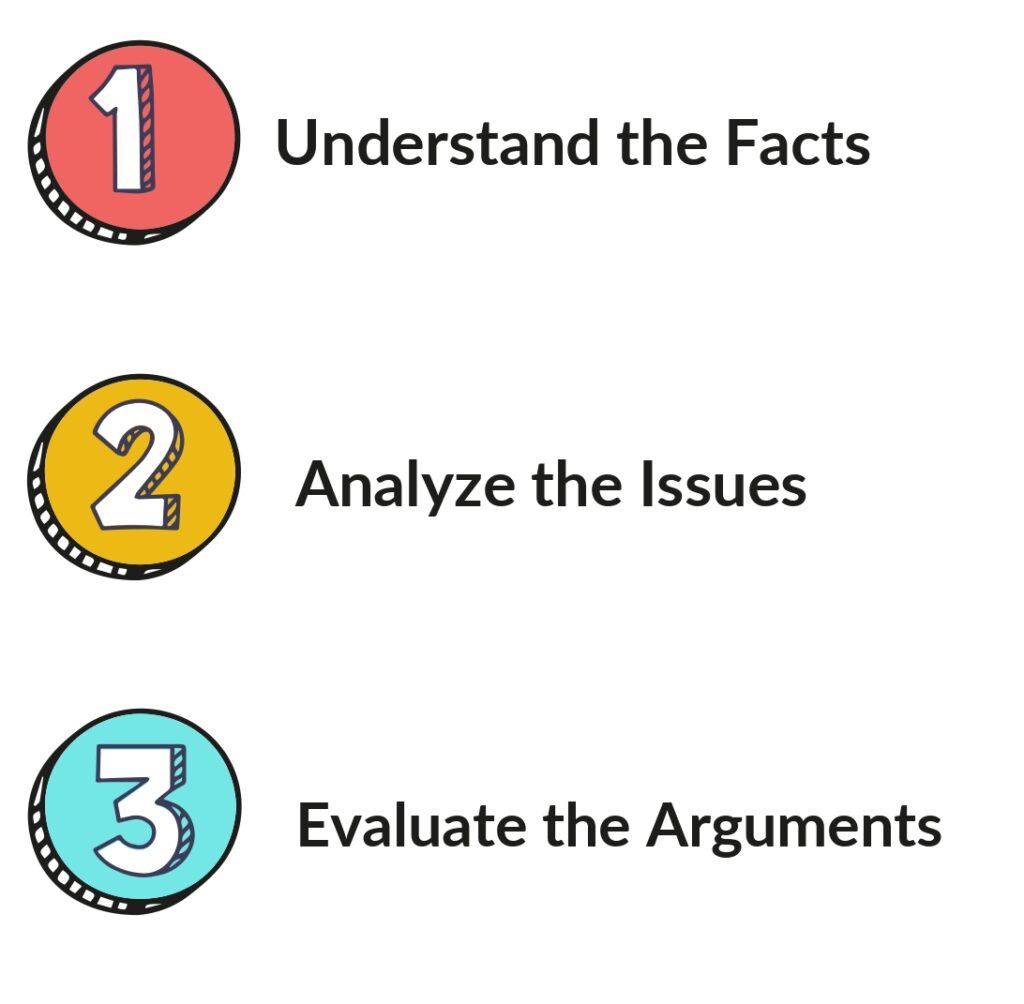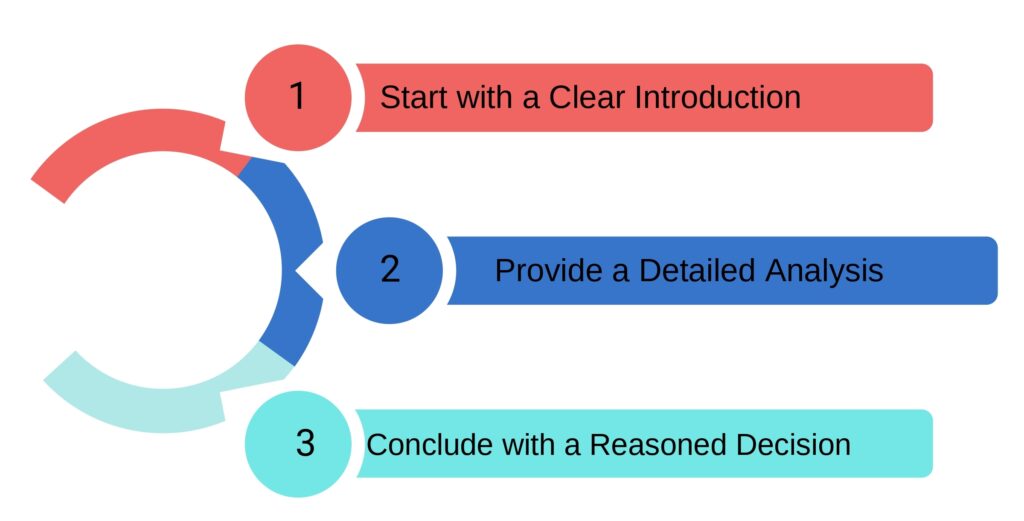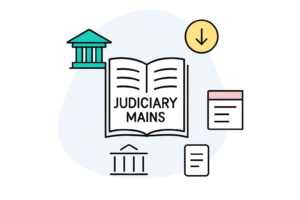Writing judgments isn’t just about applying the law, it’s about crafting a masterpiece that reflects your legal acumen, precision, and clarity. As an aspiring judge, your judgment-writing skills will not only showcase your legal reasoning but also shape how justice is perceived.
This guide is your secret weapon to mastering judgment writing, helping you draft clear, structured, and legally sound decisions that leave a lasting impact.
1. Dive Deep into the Case Background

Before putting pen to paper, immerse yourself fully in the details of the case. Think of it like solving a mystery!
Understand the Facts
- Who are the parties involved?
- What are their claims and contentions?
Analyze the Issues
- What legal question needs resolving?
Evaluate the Arguments
- What are the strengths and weaknesses of each side?
Tip: Take detailed notes as you review the case. These form the backbone of your judgment.
2. Identify the Core Legal Question
At the heart of every case lies a legal question that must be answered. This is your compass for writing a focused and relevant judgment.
Pinpoint the Issue
- What is the central legal question in this case?
Articulate it Clearly
- A clear, concise statement of the issue sets the tone for your entire judgment.
3. Locate the Relevant Provision of Law
Next, identify the exact legal provisions or statutes that apply to your case.
Why This Matters
- This forms the foundation of your legal analysis and final decision.
Insider Tip
- Familiarize yourself with frequently cited laws to boost efficiency.
4. Apply Legal Reasoning with Precision
Now it’s time to break down the issue and apply the law step-by-step to the facts before you.
Assess Each Argument
- Analyze the merits and demerits of every argument presented.
Evaluate Positions
- Weigh each party’s stance based on legal principles and relevance.
Pro Tip: Present your reasoning logically and clearly; stepwise analysis always wins.
5. Support Your Conclusion with Precedents
Judicial precedents are your strongest allies in judgment writing.
Find Similar Cases
- Look for cases with facts or issues similar to yours.
Use Them Wisely
- Cite relevant precedents and explain how they reinforce your decision.
Pro Tip: Precedents lend authority and credibility, acting as your legal armor.
6. Maintain a Logical Structure for Maximum Impact

A well-organized judgment is like a roadmap that guides the reader clearly through your reasoning.
Start with a Clear Introduction
- Outline the case background and central legal question.
Provide a Detailed Analysis
- Break down facts, law, and arguments systematically.
onclude with a Reasoned Decision
- Tie everything together in a clear, decisive conclusion.
Pro Tip: Use headings, subheadings, and bullet points to make your judgment visually accessible.
7. Practice
Like any craft, judgment writing sharpens with consistent effort.
Start Simple
- Begin by drafting judgments on straightforward cases.
Gradually Tackle Complexity
- Challenge yourself with more intricate issues as you improve.
Seek Feedback
- Get your drafts reviewed by mentors or peers to refine your skills.
Pro Tip: The more you write, the stronger your judgment-writing ability becomes!
Conclusion: Write with Impact and Authority
Judgment writing is not just a technical exercise, it’s your chance to make a meaningful contribution to the law. By mastering these structured techniques, you’ll become not only a better writer but also a sharper legal thinker.
Your judgments will reflect your ability to reason logically, apply the law skillfully, and communicate with clarity.
Feeling Unsure About Your Judgment Draft? 🤔 Let Edzorb Help You!
Need expert feedback to polish your judgment-writing skills? Edzorb’s experienced team is here to guide you with personalized coaching, enhancing your legal reasoning and writing style. NOW.
🚀 Ready to elevate your judgment writing? Start today and turn every case into a legal triumph! 🖋️

 Podcast
Podcast







 Features
Features






